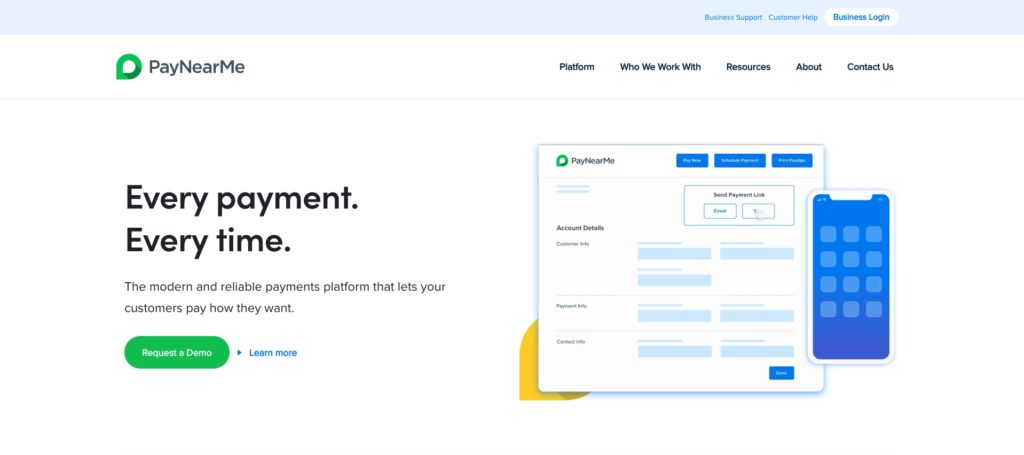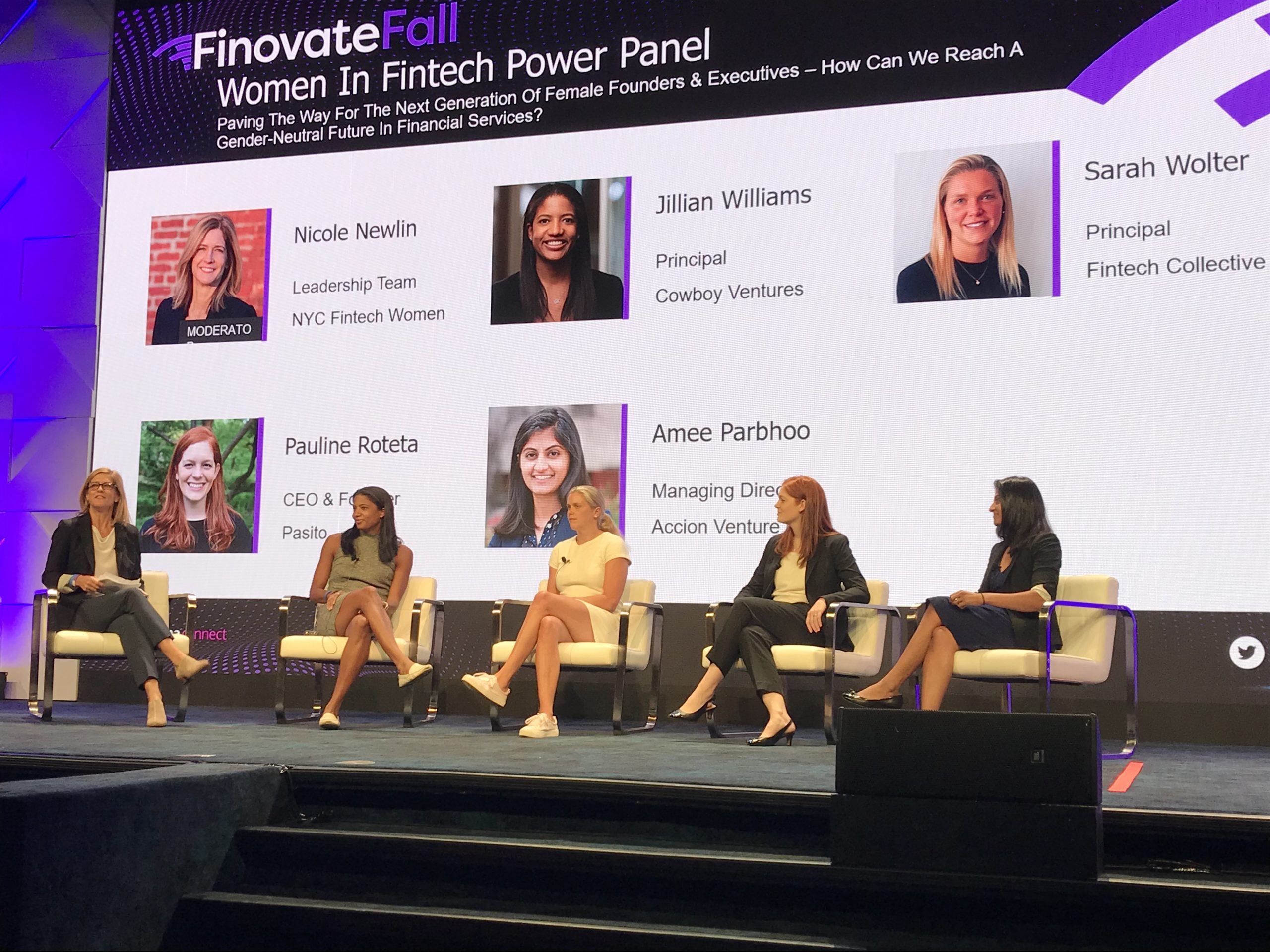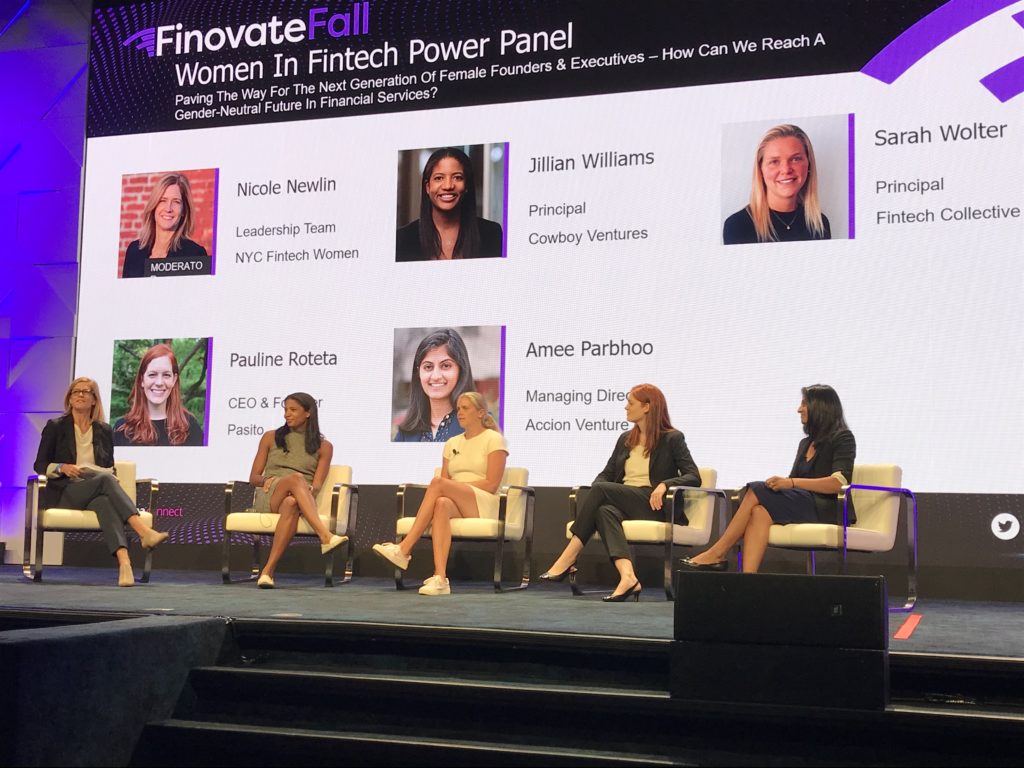
FinovateFall 2021 wrapped up a little over a week ago. Our return to live fintech conferencing produced one of our largest number of Best of Show winners (nine) to date. The event also gave us the one of the highest percentage of non-U.S. based Best of Show winners for a FinovateFall event.
This week’s Finovate Global Alumni Profile gives us an opportunity to take a closer look at the quartet of international fintechs that wowed our audiences with their latest innovations in New York City last week.
A Finovate alum since 2016, Bambu has made most of its Finovate appearances at our international shows in Hong Kong, South Africa, Dubai, and Berlin. The company is a multiple-time Best of Show winner, earning its first award in its second Finovate appearance at FinovateAsia in 2017, its second Best of Show award a year later at our conference in Capetown, and its third Best of Show trophy just last week in New York.

Bambu offers a next-generation B2B roboadvisory platform for both financial institutions and fintech disruptors. Powered by the company’s proprietary algorithms and machine learning technology, Bambu’s cloud-based platform has 300,000 end users in ten countries around the world. This summer, the company announced the acquisition of investment management technology provider Tradesocio, a move that will help expand Bambu’s reach internationally.
“After five years of building solid foundations, Bambu is now entering a phase of rapid growth,” Bambu CEO Ned Phillips said when the acquisition was announced in July. “This deal helps us in three key areas: it expands our product offering into stocks and crypto, it gives us a wider global footprint, and enables us to scale our team effectively to match exponential demand. We believe this positions us well for our Series C and ambitions of becoming the global leader in WealthTech.”
Headquartered in Stockholm, Sweden, Dreams earned its second Best of Show award last week at FinovateFall. The company, founded in 2014, is among the more recent Finovate alums, joining our roster last year for our all-digital FinovateEurope conference.

Dreams offers engagement banking solutions that leverage insights from cognitive and behavioral science to enhance financial wellbeing. Launched as a B2C offering, the company has expanded into the B2B2C space, offering its solutions to banks to help them boost digital engagement with their customers. This year at FinovateFall, Dreams demonstrated the savings module of its white-label banking platform, which features debt management and micro-investing functionality, as well as new social/viral features.
Over the past year, Dreams has announced partnerships with Singapore-based financial services software provider Silverlake Symmetri and Ukrainian commercial bank UKRSIBBANK, a subsidiary of BNP Paribas Group.
“Our financial wellbeing platform – which is built upon behavioural science and personal finance management principles – will provide the perfect tool for UKRSIBBANK to help its customers make better financial choices and become more sustainable in the way they handle their finances,” Dreams CEO and founder Henrik Rosvall said when the collaboration was announced. “This partnership will also help UKRSIBBANK safeguard the loyalty of its customers and futureproof its digital banking offering against a growing number of challenger banks and fintechs.”
Hailing from Toronto, Ontario, Canada, digital adoption platform Horizn was launched in 2012. The company is dedicated to helping financial institutions leverage micro-learning, social technology, gamification, and advanced analytics to enhance employee performance, fuel client adoption of new technologies, and boost revenues. With a global reach of more than 40 countries in North and South America, Asia, and Europe, the company has enabled its clients to realize 85% employee adoption rates and a 20% increase in mobile platform usage.
Horizn made its Finovate debut in 2017 at FinovateEurope in London. The company earned its first Best of Show honors at FinovateEurope in Berlin three years later, and picked up its second Best of Show award the following year at our all-digital event FinovateFall 2020. “It’s great to see Finovate recognize the impact that Horizn is having on banks worldwide,” company CEO Janice Diner said last year. “While COVID-19 may have accelerated the shift to digital, Horizn ensures bank customers stay digital.”
In addition to their Best of Show winning technology demonstrations, Horizn has also provided Finovate with some of its most compelling keynote speakers. Both Diner and Senior Vice President for Global Sales Steve Frook have shared their insights during the Conference Days component of our Finovate events. Frook’s FinovateEurope presentation, Landing Your First Bank Customer, was a highlight of our Berlin conference last year. And Janice Diner’s epigrammatic reminder that “if you build it they will come is a myth” remains as a good a piece advice for fledgling fintechs as you’ll ever hear.
The rise of fintech in Latin America has been one of the most impressive developments in global financial services in recent years. This is partly why the Best of Show award won by Uruguayan fintech Infocorp last week at FinovateFall feels so special.

Making its Finovate debut in the spring of 2017, Infocorp demonstrated its IC Campaigns platform that enables financial institutions to coordinate marketing and commercial operations via all available channels to better identify the optimal, next action for each client. The technology takes the omnichannel banking and seamless user experience requirements of modern banks to another level by helping institutions set up shorter-cycled, more agile campaigns that deliver increased conversion rates and higher ROI. Last week at FinovateFall, Infocorp introduced its Mobile Native App, a new solution that brings hyper-personalized experiences for every user in a single bank app.
Inforcorp CEO Ana Inés Echavarren spoke to the importance of “the mobile challenge” in a conversation with fintech analyst and thought leader Jim Marous in the weeks leading up to Infocorp’s return to the Finovate stage in September. “Everywhere the mobile channel is the one of choice now among users,” she explained. “Adoptions have gone up in all the implementations that we have in all the countries that we know of.” As far as Echavarren is concerned, this means that there has been a “mindset shift” in which the mobile experience and the user experience increasingly have become synonymous. To this end, Echavarren said, “we are no longer talking about the bank application, but about the user application.”
Founded in 1994 and headquartered in Montevideo, Infocorp has more than 40 successful deployments, 10+ million active users on its platform, and processes more than 120 million transactions a year.
Here is our look at fintech innovation around the world.
Central and Eastern Europe
- Lativian fintech Jeff App secured a $1.5 million seed funding extension led by J12 Ventures.
- IBS Intelligence featured four German fintechs that are “dominating the European market.”
- Deutsche Bank acquired Better Payment, a Berlin-based payment service provider.
Middle East and Northern Africa
- Emirates Development Bank unveiled a new SME banking app.
- Abu Dhabi Islamic Bank (ADIB) teamed up with digital payments provider Spotii to introduce the UAE’s first Buy Now Pay Later prepaid card.
- Egypt-bsed fintech Kashat secured $1.75 million in a round led by Launch Africa Ventures.
Central and Southern Asia
- The central bank of Bhutan, the Royal Monetary Authority, announced a plan to use technology from Ripple to test its central bank digital currency.
- Pakistan-based fintech TAG raised $12 million in seed funding this week, earning a valuation of $100 million.
- Indian neobank for SMEs, FloBiz announced a $31 million Series B investment to fuel expansion.
Latin America and the Caribbean
- Buenos Aires, Argentina-based enterprise low-code platform Veritran announced a partnership with digital innovation company n!Transformers.
- Nubank acquired Sociedad Financiera Popular, enabling the Brazilian fintech to offer new financial services in Mexico.
- The BVI Beacon looked at the launch of the Caribbean’s first secure digital sovereign currency, DCash.
Asia-Pacific
- Singapore-based payments company Spenmo secured $34 million in Series A funding.
- Vietnam’s central bank received a mandate from the country’s government to develop a fintech sandbox and draft rules regulating Vietnam’s emerging financial technology sector.
- Thailand-based fintech Fraction gained regulatory approval to partner with property owners to sell fractional stakes in their real estate.
Sub-Saharan Africa
- Finclusion announced that it acquired a strategic stake in African payroll software company HelloHR.
- TechCrunch profiled Nigerian fintech HerVest which brings access to savings, fund transfers, and investment opportunities to women living in rural areas.
- HelloChoice, an “agri-fintech”-based in South Africa, scored an investment from Standard Bank.
Photo by Andrea Piacquadio from Pexels



























